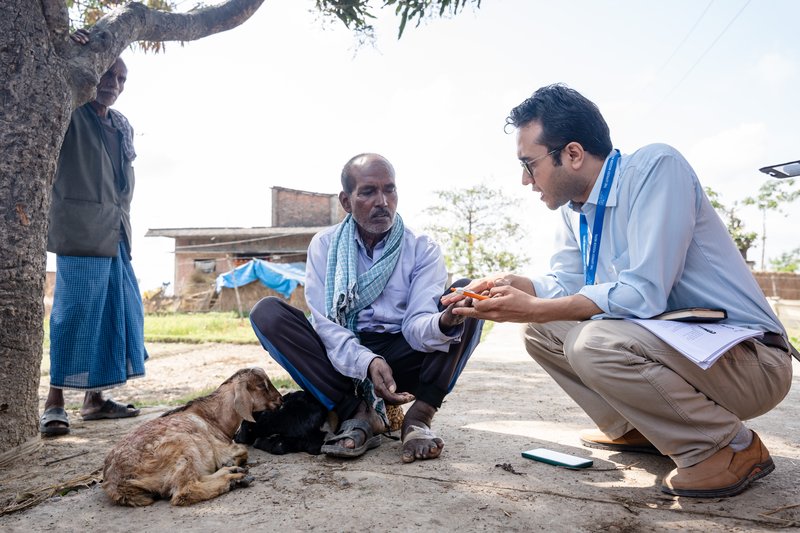The UK government's Global Health Framework: leprosy must be included
Last month, the UK government published its new Global Health Framework. It sets out the government’s commitment to leaving no one behind when it comes to healthcare provision.
As we reflect on the impact that efforts to improve healthcare around the world have had in recent years, it's vital that people affected by leprosy must be included in this.
The Sustainable Development Goals: a long way to go
In 2015, the Sustainable Development Goals were launched. Expansive and ambitious, they set out a vision for a more equal and healthier world.
With the target date for achieving these goals set at 2030, we are now at the half-way point. Globally, we still have a long way to go: the UN has estimated that the Covid pandemic wiped out over four years of progress on ending poverty. Health services across the world are stretched to breaking point. Millions of people are affected by climate change, worsening health issues. 1.7 billion people across the world still need treatment for neglected tropical diseases, including leprosy.
The launch of the new Global Health Framework last month renewed the government’s dedication to Sustainable Development Goal 3 – ensuring health and good wellbeing. The government has also committed to leaving no-one behind, so every person can realise their right to good health. Amid global challenges to achieving this goal, we're thankful that the wellbeing of some of the world's most marginalised people is being prioritised.
Leaving no-one behind
Leprosy is a disease of poverty - many affected are extremely vulnerable even before symptoms or a diagnosis. People often cannot access any local specialist leprosy services, if there are health services at all. For remote rural communities, hospitals offering the care they need can be hundreds of kilometres away. Without early access to treatment and follow up healthcare, leprosy causes disability and plunges people into even deeper poverty.
The UK government has recognised that to leave no-one behind in global health, we must meet the needs of the poorest, people with disabilities, and those living in remote places. The UK government’s commitment to leprosy has had an outstanding impact to date. But in the future, we must make sure that people affected by leprosy are included in the government’s global health actions.
Our Heal Nepal project was supported by the UK government through its UK Aid Match scheme. Over three years, community health workers cured nearly 2,000 people of leprosy, and traced a staggering 74,822 close contacts of people diagnosed with the disease. Hundreds of government health workers are now able to detect the early signs of leprosy, which will advance leprosy services in Nepal for years to come.

The Heal Nepal project has also strengthened wider local healthcare provision. Its success equipped the team for unprecedented times, as the money raised enabled Anandaban Hospital to become a designated Covid vaccination centre. A new trauma centre has also been constructed through the project, the only facility of its kind in the vast Kathmandu Valley area. A&E, paediatric and maternity departments will provide life-saving health services to the whole surrounding community.
The legacy of Heal Nepal must continue: the UK government must include support for leprosy elimination across the world to achieve the ambition set out in the Global Health Framework.
Meeting the challenges ahead
There are significant challenges to ending the transmission of leprosy, and to meeting the needs of people affected. Leprosy expertise among health workers is scarce and declining further. Covid disrupted the delivery of leprosy services, and crises across the world continue to do so today. Climate change is increasing people’s vulnerability to the disease, and worsening the impacts of living with leprosy. Global partnership to achieve leprosy elimination is needed now as much as ever.
The Global Health Framework sets out the government’s commitment to improving community healthcare, supporting health workers’ training, and building climate resilient health systems. People affected by leprosy must be included in the government’s global health commitments. This won’t just enable some of the most disadvantaged people in the world to access high quality treatment. It will also support the government’s broader global health aims, and strengthen the UK’s impact on the Sustainable Development Goals.
We look forward to seeing the UK government’s continued commitment to leaving no one behind in action.
Photos: Robic Upadhayay